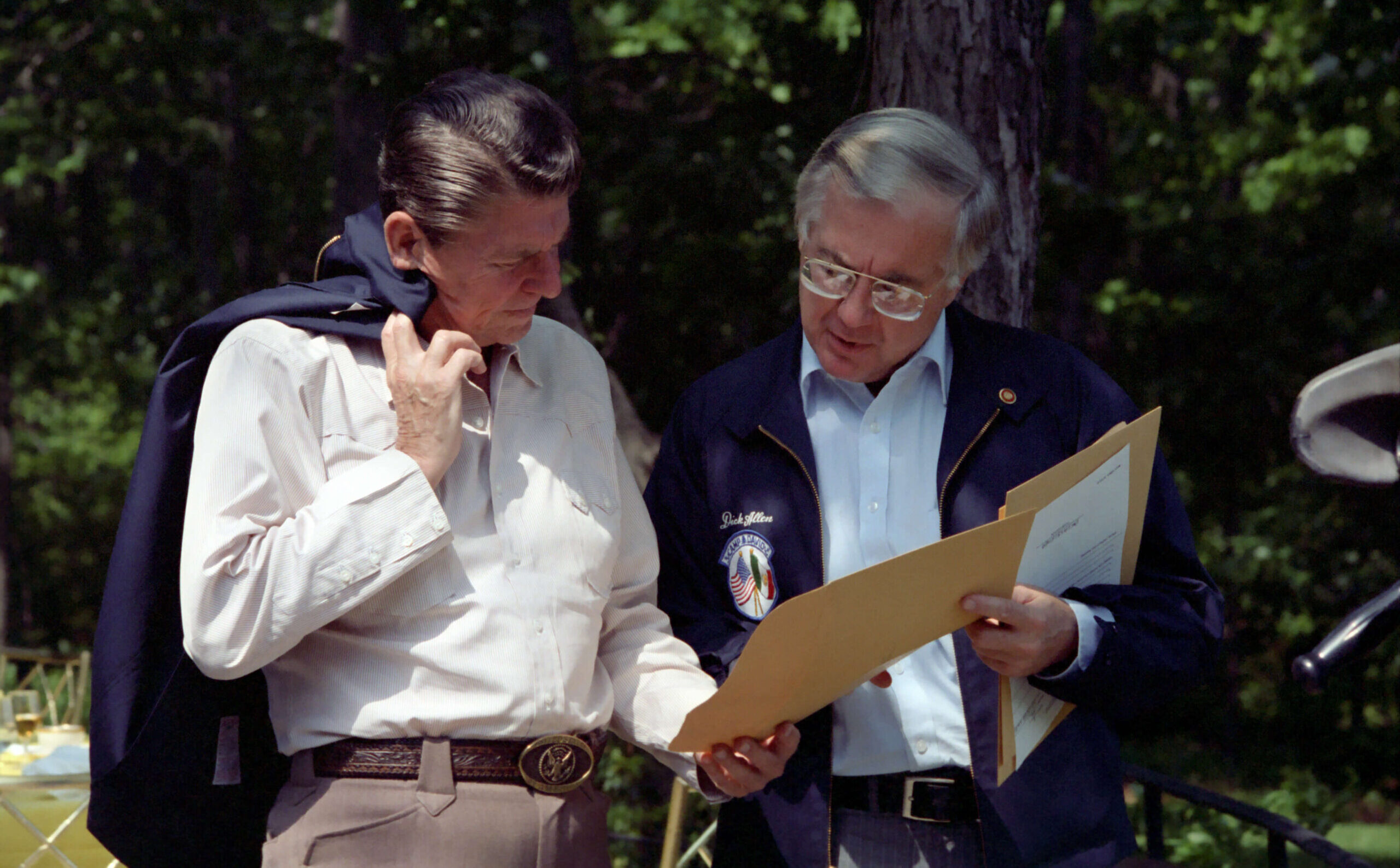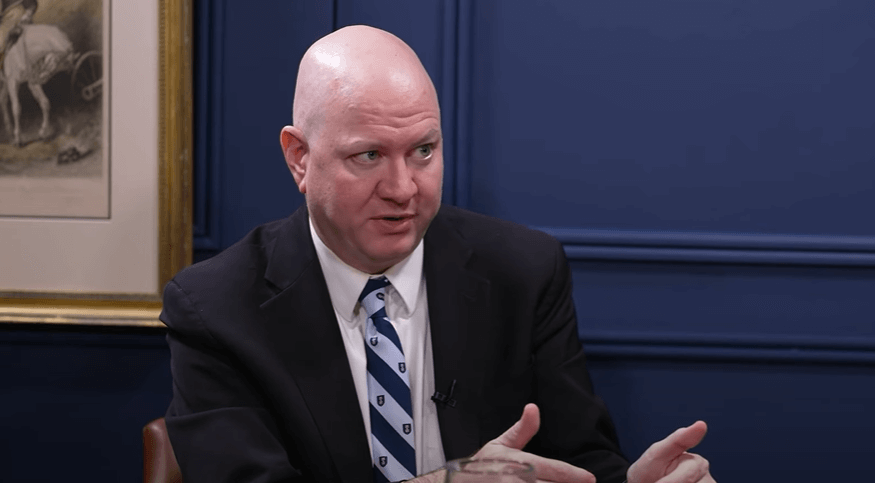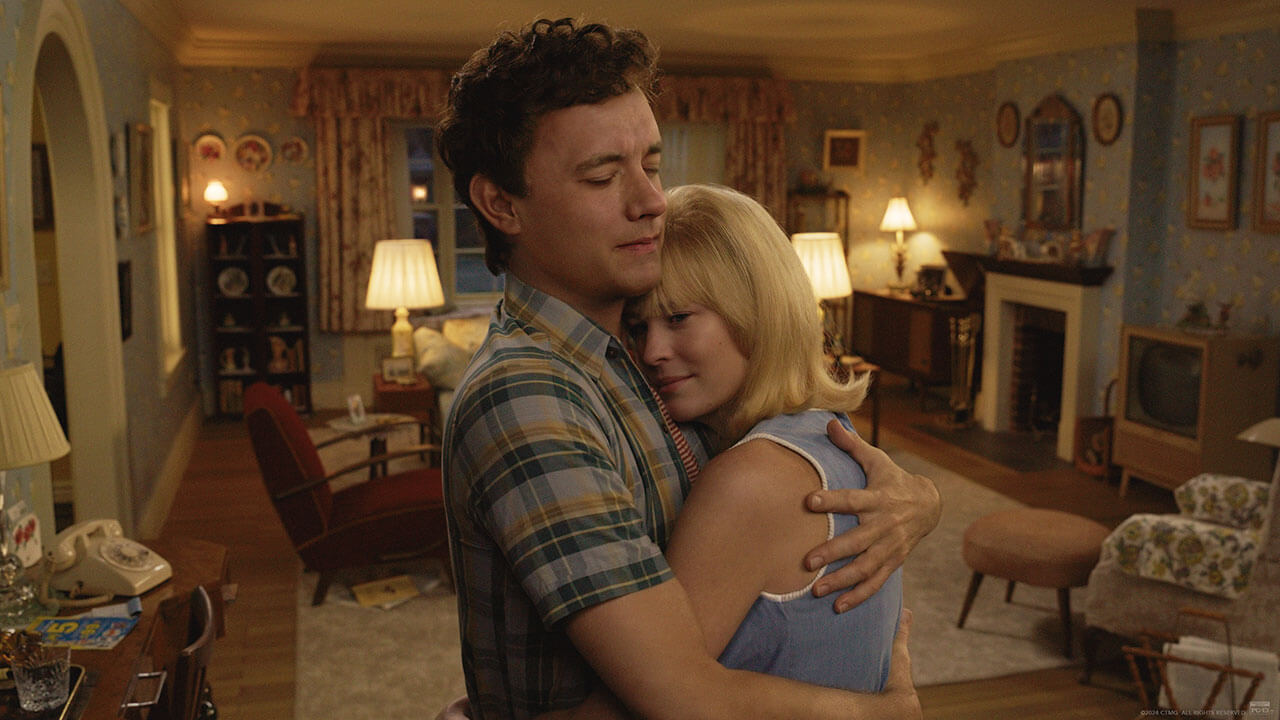Back in the mid-’90s, I invited a prominent scholar of American literature to Emory University for a guest lecture. He was an endowed professor out west but a few years before had served as chairman of an English department in the Ivy League. There he had hired several junior professors who soon made enviable reputations as up-and-coming theorists, the cutting-edge of the rising generation. Over lunch, with his experience cultivating young talent in mind, I mentioned that younger scholars didn’t seem as widely learned as before. (Many professors at the time complained about overspecialization in humanities fields.) He replied with a revealing story.
One day in the middle of a semester a few years earlier, he invited one of those recent hires to his house to join him and his wife for dinner and conversation later that week. When he specified the day, she fidgeted and declined. There was a conflict. Every week, she explained, all the assistant professors gathered at one house to watch Miami Vice, the popular network show about glamorous detectives in Miami. She was a little nervous about it, but assured him it was an intellectual exercise. At each commercial break, they would take turns analyzing the embedded ideology in what they had seen.
My guest laughed and shook his head when he recounted her response. “I realized right then that this was not the same world anymore.” He wasn’t sad or disgusted, just bemused. “Mark,” he continued, “you have to understand, when I joined that department in the early ’70s, not only would you never mention you watched a show like that. You wouldn’t even admit you owned a TV!”
We moved on, but I remember the exchange vividly. He died a few years ago. I wonder now if those senior professors of his who grew up in the ’50s and presided over the humanities during the Baby Boom explosion realized their coming obsolescence. Even as the revolts of the ’60s drew all kinds of pop vulgarities into the public sphere, they probably believed that the Ivory Tower would hold out. Only a few years before my friend started his career, Irving Howe regretted this “glorious infatuation with trash that Marshall McLuhan made acceptable” (“The New York Intellectuals,” Dissent, October 1969), but he had in mind fashionable intellectuals such as Susan Sontag, whose “Notes on Camp” (1964) ranged from Caravaggio and Pope to Flash Gordon and The Maltese Falcon. He didn’t expect professors at Stanford, Brandeis, and Hunter College, where he taught for many years, to become postmodern cop-show fans. What would he have thought of a story in The Atlantic from 2015 entitled “The Rise of Buffy Studies,” which noted that academics treat Buffy the Vampire Slayer, The Wire, Mad Men, etc. as “sprawling works of art to be dissected and analyzed alongside the greatest works of literature”? Or the creation in 2012 of a minor in “Africana Studies with Concentration in Hip-Hop Cultures” at the University of Arizona? Or the fellow from the College Board who in a meeting convened in Washington, D.C., many years back objected to my insistence on a reading list in high school English by sputtering, “There is no reason at all to put Shakespeare on that list rather than anyone else”?
Nobody in 1975 could have predicted it, but perhaps they should have. The signs of infiltration were there, and the pleasure young people took in taking pop culture seriously was enticingly mischievous. An English translation of Roland Barthes’s Mythologies appeared in 1972 and proved that sophisticated minds could address professional wrestling, ads for detergent and margarine, Garbo’s face, and food photos in Elle and suffer no loss of prestige. Certainly many professors who came across Ariel Dorfman and Armand Mattelart’s How to Read Donald Duck (1971), which interpreted the cartoon character as imperialist propaganda, got a charge out of it. It showed that academic study of pop culture could be a satisfying complement to leftist passions in the Vietnam Era. It was fun, too, as the years progressed, to see a renowned philosopher turn to screwball comedies, as Stanley Cavell did in Pursuits of Happiness: The Hollywood Comedy of Remarriage (1981). If you were browsing the press booths at the MLA Convention in 1994, which book would you pick up and open, the fifty-eighth tome on Wordsworth or Cigarettes Are Sublime by Cornell professor Richard Klein? If in the ’90s you caught the Gender Theory bug, Barbie’s Queer Accessories (1995), one of the better-known titles in Duke University Press’s Series Q, probably grabbed you more than a book on queer elements in Victorian poetry. Why not take a break from Paradise Lost and enjoy the ’60s TV show The Fugitive, as Stanley Fish did in The Fugitive in Flight: Faith, Liberalism, and Law in a Classic TV Show (2010)? And wouldn’t students flock to a class introducing them to philosophy through application to The Simpsons, as a super-popular course that started at Berkeley in 2003 did?
Old leftists among the New York intellectuals and the Frankfurt School thought pop culture dulled the political consciousness of the masses, but by 1990 the younger tenured radicals gave it a positive thrust. Princeton professor Andrew Ross voiced the new attitude in No Respect: Intellectuals and Popular Culture (1989):
While it speaks enthusiastically to the feelings, desires, aspirations, and pleasures of ordinary people, popular culture is far from being a straightforward or unified expression of popular interests. It contains elements of disrespect, and even opposition to structures of authority, but it also contains “explanations,” as I have suggested, for the maintenance of respect for those structures of authority.
Pop culture, in other words, isn’t simplistic and numbing. It has a tense, ambivalent relation to power that wary intellectuals recognize but that ordinary Americans experience unconsciously. It does complex cultural work, but it takes an astute sociopolitical interpreter to appreciate it. We have a new attitude for the up-to-date critic. Don’t be a snob, but stay analytical. Let the populace consume pop culture while you critique it. It was no drawback, then, to start a sophisticated argument with examples from The Cosby Show and the Rodney Dangerfield movie Back to School, as Ross does, not if it served a critical point. The boundary between classics and TV shows had to go. If you kept your interpretative ken, you could draw pretty much anything into the discipline. By the year 2000, the invocation of low culture in high academic discourse didn’t raise a single eyebrow. Fifteen years ago, a leading English department asked me for an evaluation of a professor the department wanted to recruit—and whose recent book was a cultural study of serial killers.
Knocking Rap
All of this was understood to be an advance. The editor of Journal of Popular Culture Studies called it “a big-tent approach,” one that could “offer a revitalization of the academic humanities” (October 2018). Liberal professors who should have known better didn’t want to object to something that sounds so warm and genial, free of prejudice, a victory over elitism. But as with just about every habitat of inclusion and tolerance, there is a dark side.
Two years ago, a marketing fellow asked me to help the Author’s Guild write up and present the results of a survey the Guild had commissioned on the incomes of authors in contemporary America. Where and how and how much and for what did they get paid, recently and in the past? My friend Peter’s firm had conducted the survey. Now the results had to be fashioned into an accessible report.
I’d met Peter after I’d worked on a report for the National Endowment for the Arts entitled Reading at Risk, which generated mountains of commentary after it came out in 2004. He wanted me to bring similar attention to the Guild study, he said, and I agreed to help. We discussed further details over the phone, and after that I had a one-hour conference call with Guild staff, who asked me to serve as consultant for the project.
The next step was an in-person meeting at Guild headquarters a few blocks from my office at First Things. Before heading over around lunchtime, I happened to notice in the morning paper that the Pulitzer Prizes had been announced, the big story being a rapper who’d won in the music category, Kendrick Lamar for his album DAMN. Great, I thought, once I checked out the lyrics to the songs and found the same self-dramatizing coarseness of a thousand others in the genre—even the Pulitzers have gone hip.
When I arrived at the Guild offices, sat down with a few staff members, and waited for the director to enter, one person noted her excitement over the choice of Lamar. About time rap finally got its due, she said, then glanced at me.
“I think it’s abominable,” I answered. The others stopped chatting. This wasn’t the response they expected. She paused and stared at me, then said something about rap being important to a lot of people. I replied only that I doubted anyone would think so thirty years from now. Just then, the director entered, we dropped the subject, and the planning started. The discussion went well, the leader liking what I suggested the report emphasize and how it should be rolled out. My rap interlocutor, though, remained silent. They asked about my fee and I named the figure Peter suggested I charge. They said that was fine, and we adjourned with them saying they would ask Peter to send along the raw data and I would begin drafting the report.
A month passed, and I heard nothing. I sent Peter a note and got no response. Another three weeks passed, and I sent a note once more. Again, nothing.
I got the message. I was out of the picture, and I am certain it was because of my rap comment. No other cause would be met with silence. The Guild people must have called him and canceled me. If it were the money I requested, Peter would have said so. Perhaps after the others told the director about my remarks, the Guild wondered whom they were dealing with, looked me up on the internet, and found some pro-Trump writings. The project did proceed, a press release coming out in January 2019. Only a lapse in decorum could have caused the unexplained split, my behavior bad enough to dispense with the courtesy of a formal separation.
This is where the intelligentsia are now. Junior professors in 1987 at elite schools were embarrassed to go slumming in pop culture. They didn’t want senior professors to know. Pulitzer Prize committees wouldn’t honor adolescent words and images, either. Today, though, academics and intellectuals must be careful to do the opposite, to display abhorrence of that kind of rank and propriety. Oh, the embarrassment is still there, but only when cultural conservatives push the issue. A senior professor who flaunts his love of ’60s rock ’n’ roll in the classroom appears to many of his colleagues slightly ridiculous, but they don’t make an issue of it. When a more conservatively minded critic points such lowerings out, he’s the one who causes discomfort. Set Lamar’s DAMN alongside the Pulitzer winner in 1945, Aaron Copland’s Appalachian Spring, and the winner in 1949, Virgil Thomson’s score for Robert Flaherty’s great documentary The Louisiana Story, and intelligent people start to squirm. They haven’t completely lost their taste. The woman at the Author’s Guild didn’t wish to argue, only to have me go along with the approval. When I didn’t do so, she just wanted me to go away; she knew that rap can’t hold up to scrutiny.
Pop culture has become yet another litmus test for admission to education/culture spheres. It stands alongside a person’s attitude toward race and sexuality as a qualification for membership. What was once a mark of distinction—the maintenance of a high/low split—has become a sign of unworthiness. The stuffy professor is gone, and so are High Culture leftists such as Theodor Adorno and Dwight Macdonald. What we have now is a widespread exercise of flimsy pretense, an insincere supposition that all cultural objects are, in principle, equally worthy of attention. What really matters, we are supposed to believe, is the interpretative acuity of the critic. What the intellectuals and academics won’t admit is that in accepting lower creations into their institutions, they have lowered themselves. “Tell me what you like and I’ll tell you what you are.”
Mark Bauerlein is senior editor at First Things and emeritus professor of English at Emory University.
Founded in 1957 by the great Russell Kirk, Modern Age is the forum for stimulating debate and discussion of the most important ideas of concern to conservatives of all stripes. It plays a vital role in these contentious, confusing times by applying timeless principles to the specific conditions and crises of our age—to what Kirk, in the inaugural issue, called “the great moral and social and political and economic and literary questions of the hour.”
Subscribe to Modern Age »













